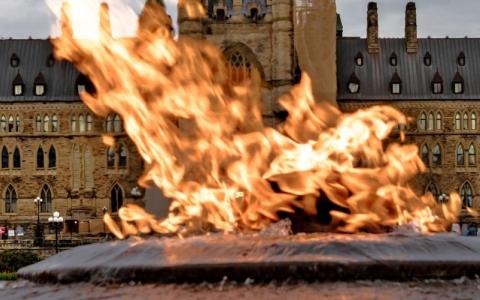
Sign up for our regular email for updates on ministry in Canada.
Indigenous people are image bearers of God. The unique gifts that Creator God has given to Indigenous peoples have not always been recognized and celebrated. We commit to reconciliation.
“We have described for you a mountain. We have shown you the path to the top. We call upon you to do the climbing." —Justice Murray Sinclair
We live in a Canada in which the Truth and Reconciliation Commission (TRC) has finished its hearings, having listened to the stories of hundreds of Indigenous people who were taken to church-run boarding schools that were intended to assimilate them into Canadian culture. We live in a Canada in which the Prime Minister has apologized on the floor of the House of Commons for residential schools. We live in a Canada in which the current Prime Minister has said: “No relationship is more important to me and to Canada than the one with Indigenous Peoples. It is time for a renewed, nation-to-nation relationship with Indigenous Peoples, based on recognition of rights, respect, cooperation, and partnership.”
There is hope for reconciliation—but for hope to be real action for change is urgent. Apologies and noble words must be followed by real change. The 94 Calls to Action of the TRC must be implemented. Indigenous schools on-reserve are still funded at a rate of 30-50 percent lower than are provincial schools. Indigenous women still face much higher rates of violence. The United Nations Declaration on the Rights of Indigenous Peoples is a framework for reconciliation that can reshape the way we live together on this land.
Indigenous people are created in the image of God. Because Creator Spirit is at work in all cultures (known in Reformed theology as common grace), we see his inspiration in Indigenous cultures in many ways.
Unfortunately, the church has not always seen the image of God in Indigenous peoples. In fact, we have often legitimized racism through official church proclamations and actions like the Doctrine of Christian Discovery and the use of residential schools.
Despite this brokenness, we see our merciful God at work among us. We see Creator Spirit at work in the creation-honouring ways of Indigenous cultures, in the resilience of Indigenous peoples, in causing their cries for justice to be heard through the Truth and Reconciliation Commission. We see God’s desire for the flourishing of all in the United Nations Declaration on the Rights of Indigenous Peoples and in the desire for reconciled relationships that he inspires in hearts across the country.
We trust that Creator Spirit will continue to reconcile us to each other, and we listen, repent, and work to make those reconciled relationships a reality. Bind us together, Lord.
We have been advocating for Indigenous-led Indigenous education reform that establishes equitable funding, assures suitable infrastructure, and includes language, culture, and the participation of parents, elders, and community in curriculum since 2011. Here are the most recent advocacy letters we have written to the government about Indigenous education reform.





